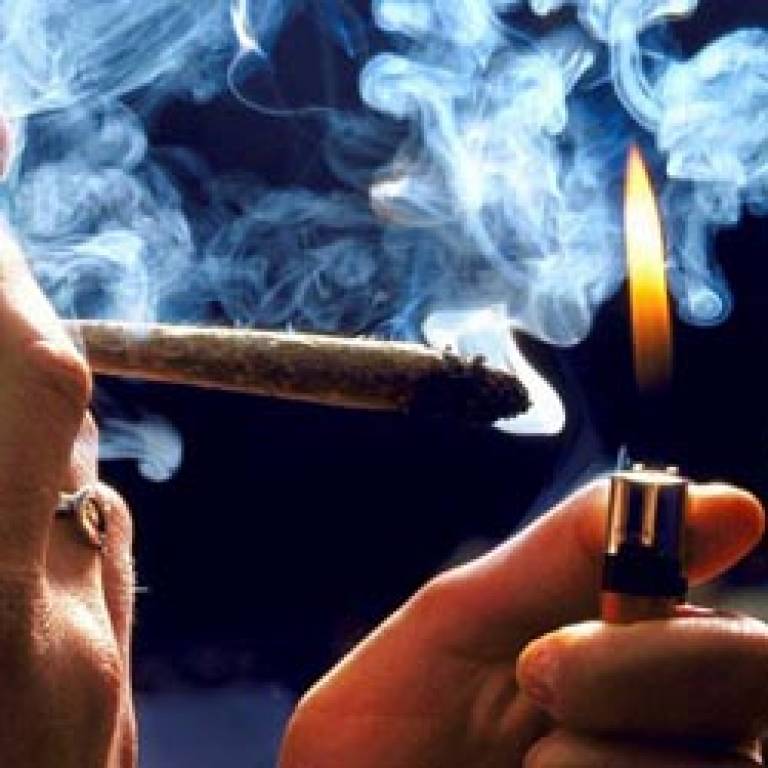Study links cannabis strains with memory impairment
1 October 2010
Links:
 rcpsych.org/" target="_self">British Journal of Psychiatry
rcpsych.org/" target="_self">British Journal of PsychiatryProfessor Val Curran
People who smoke potent strains of cannabis that are low in
cannabidiol (such as skunk) are putting themselves at far greater risk of acute
memory loss than people who smoke other types of the drug, according to new
research published in the October issue of the British Journal of Psychiatry.
Now the study's authors are calling for cannabis users to be made aware of the risks associated with using some strains of cannabis - and encouraged to use strains with higher levels of cannabidiol instead.
Two major constituents of cannabis are Δ9-tetrahydrocannabinol (THC) and cannabidiol. THC is the main psychoactive ingredient which makes users feel 'stoned', and produces psychotic-like symptoms such as delusions and paranoia. In contrast, cannabidiol does not induce these symptoms and may counteract the effects of THC. Levels of cannabidiol in cannabis can range from virtually none, to up to 40 per cent.
The UCL researchers tested 134 cannabis users aged between 16 and 23 years. The participants were invited to take a series of memory tests on two separate occasions - once while they were smoking their own preferred type of cannabis and were intoxicated, and once when they had not smoked for the last 24 hours and were sober.
A sample of the cannabis each participant smoked was taken on the intoxicated day and analysed for levels of THC and cannabidiol. Saliva samples were also taken from each participant, and analysed for levels of THC and cannabidiol.
The researchers found that people smoking cannabis containing a low percentage of cannabidiol performed much worse on the memory tests when they were intoxicated than when they were sober. In contrast, those smoking cannabis high in cannabidiol performed just as well on the tests when they were intoxicated as when they were sober. There were no differences in the THC content of the cannabis smoked by any of the participants.
Professor Valerie Curran, UCL Psychology, said: "We asked the participants to recall a short passage of prose, immediately after hearing it and again after a short delay. We found that people who were smoking cannabis low in cannabidiol experienced memory impairment and remembered less of the prose that they could when sober. However, people who were smoking high cannabidiol strains were still good at these tests. Indeed, their performance when intoxicated was virtually indistinguishable from when they were drug-free.
"Over the last 20 years, the constituents of street cannabis have changed, with low-cannabidiol strains like skunk now dominating the market. But our study suggests that these strains can increase the risk of cognitive harm. On the back of this study, we believe users should be made aware of the risk of memory impairment from smoking low-cannabidiol strains. They should be encouraged to use strains containing higher levels of cannabidiol instead."
UCL Context
The Division of Psychology and Language Sciences undertakes world-leading research and teaching in mind, behaviour, and language. It brings together researchers in a range of disciplines such as cognition, neuroscience, linguistics, education, communication, medicine, health, phonetics and development to understand both basic and applied problems. The Division's work attracts staff and students from around the world. Together they create an outstanding and vibrant environment for both study and research
Related news
Drug users know their stuff
UCL scientists research the effect
of fright on the brain
 Close
Close

